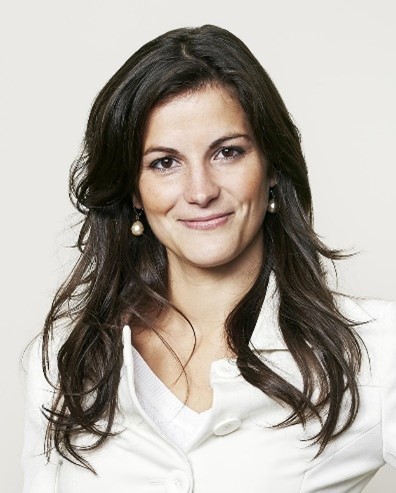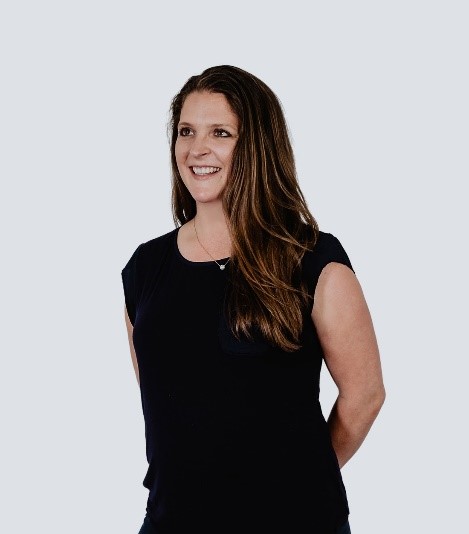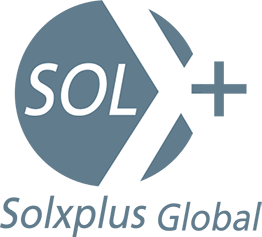Embracing Women in Business
Women are overcoming great odds to make headlines in the business world. For instance, 30+ female CEOs head some of the Fortune 500 companies. Reaching such a level means hard work and determination.
The business world is male-dominated; thus, many women may find it intimidating. It takes courage and mentorship to surmount such obstacles.
Beyond CEOs, women head departments– for instance, chief financial officers. Still, the current market has an increasing number of women-owned businesses, job opportunities, and generate income.
Women in business are few, but it shows advances women are making at workplaces. Good thing is, women-owned businesses generate high amounts of revenue than men-owned businesses.
Here are a few of the women in business that we have collaborated with over the last decade.
Giovanna Mingarelli
Founder and CEO of MC2

Firstly, could you tell me a bit about yourself? Where and how did you start your company?
I’m a tech entrepreneur, public speaker and writer. I was born in Ottawa and grew up in a family with six brothers and sisters in Rockland, Ontario. I am the typical Millennial digital native: people ages 18 to 35 that were brought up with computers and the internet from an early age.
There are actually 9 million Millennials in Canada – many of whom are digital natives.
It’s predicted that by 2020, Millennials will make up 50% of the workforce globally. A McCann World Group Study of Millennials from all corners of the world identified the three key motivations that connect Millennials globally, these are: justice, authenticity, connections and community.
My startup, MC2, is a social marketplace that crowdsources positive action. Founded in 2012, MC2 offers Software-as-a-Service (SaaS) chatbots for social action, called Impact Bots. Impact Bots match Millennials creating and/or doing bite-size actions, called Microactions, with organizations, governments and companies rewarding or funding those actions. Our company is built for the digital natives who will soon be the main global workforce.
Today Fortune 500 firms currently spend more than $15 billion a year on Corporate Social Responsibility (CSR) activities, with an emphasis on Millennial engagement.
Our innovative pilot partners include: Airbnb, Equal Voice: Electing Women in Canada, The City of Ottawa, Ottawa Tourism, the National Capital Commission, the Ottawa 2017 Bureau, ImagiNation 150, The Walrus Magazine, Taking IT Globals Explore 150, Global Dignity and BeaverTails, to name a few.
What are some obstacles you had to overcome to start and run your own business as a woman?
There have been two main challenges to starting my own company: virtual workplace and funding.
Virtual Workplace:
Since its inception, MC2 has been virtually run, which has had pros and cons. Based in Ottawa, we have virtual office space, a secretary at the World Exchange Plaza and a membership at Hub Ottawa. This type of work situation keeps overhead costs low and distributed work easy – which is great.
Remote work has allowed our team the flexibility of living the lives of digital nomads. Video conferencing platforms like Zoom have become our normal way of communicating, along with Slack for day to day work. We use Guru for knowledge management and Asana for general project management.
However, this type of work situation requires a personality that’s self-motivated, autonomous and diligent in delivery. Some people need to be face to face and social interactions to be happy. Others need consistent feedback and positive reinforcements. This is not atypical of Millennials, according to a recent report about Millennials in the workplace by PwC. While virtual work has worked well in our favor, it isn’t for everyone and requires diligent care and effort to successfully manage the team upward.
Funding:
Like any start-up, funding was a challenge in starting up. Our team invested our own money, we went through a friends and family funding round and have secured loans and investment from angel investors in Canada, the United States, Uzbekistan and Hong Kong. We’re deeply fortunate that everyone who has ever invested in us has been a supporter of our mission in good times and rough times. We couldn’t have made it to today without them.
MC2 has benefited from organizations like Invest Ottawa, who in our early days, offered us incubation, Entrepreneur-in-Residence (EIR) support and SPARC funding for special projects. We still call on them to this day! Invest Ottawa was also pivotal in making the connections for us to secure funding from the National Research Council of Canada’s IRAP matched-funding program so that we could be market ready for our Spring 2017 pilots.
We’re also grateful to the City of Ottawa Innovation Pilot Program for providing us with our first municipal pilot opportunity to test our technology with City partners. These include: City’s bi-annual cleanup, Cleaning the Capital, the National Capital Commission and the Ottawa 2017 Bureau.
What are your biggest achievements and accomplishments to date? How have you evolved throughout the process?
Since MC2’s inception I’ve been honoured to share our vision and mission at events around the world from the White House in Washington D.C.; the President’s Palace in Mongolia and the World Economic Forum’s Annual Meetings in Davos, Switzerland and Dalian, China.
I’ve contributed to media outlets such as: The Globe and Mail, The Toronto Star, CBC-Radio Canada, Startup Canada and the Hill Times. I’m also a regular contributor to the Huffington Post and have been cited by Harvard Business Review and Forbes for my work with crowdsourcing and Big Data.
Just recently I was invited to join the Government of Canada Treasury Board Secretariat Talent Cloud External Advisory Board, to advise on the future of work for the public service.
That said, success and celebration are not the norm in business. For every success, there have been countless challenges. This is something I had to learn the hard way.
I’m an action-oriented person who likes to win in whatever I do. When we first started MC2, I harbored an unrealistic expectation of start-up life. I expected success fast and easy. I thought we had the best idea and that the business plan, along with funding, would make our company a winner. Not true. While these things of course matter, nothing can compensate for: a great team with good and stable management; timing (sometimes the world isn’t ready for you); taking advantage of opportunities and serendipity; partnerships (working together isn’t a nice to have, its a must); and straight up failure.
That’s right. Failure. A word I wasn’t comfortable with but needed to become intimately accepting of. It’s simply part of the package deal when running a start-up. What we are trying to do – change the nature of social engagement and eventually workplace management through Microactions – isn’t easy. Even working with the world’s experts in our field. Everything takes effort, everything takes time. Two of the greatest things I learned through this baptism by fire are greater patience and humility. Study, work hard, launch and repeat. Monitor your progress and celebrate incremental successes as the big ones are few and far between. Ultimately, the only true failure is to stop trying.
What advice would you give to a woman feeling like a “fish out of water” in the corporate or business world?
We need more women in senior leadership levels in business. Just five per cent of CEO positions in Fortune 1000 companies are held by women. The reasons for these numbers are vast and varied, resulting in challenges like the ever too common imposter syndrome and sometimes not reaching our full potential.
Some of the biggest personalities in business from Facebook’s Chief Operating Officer, Cheryl Sandberg, to Arianna Huffington, the founder of Huffington Post and writer of the best-selling book “Thrive”, have admitted to dealing with these issues. Recently, actress, producer and entrepreneur, Reese Witherspoon, penned an essay for Glamour Magazine urging the need for people to change the way they perceive ambitious women – where women often belittle their accomplishments to fit in.
I have personally struggled with the imposter syndrome along my entrepreneurial journey and have actively minimized my accomplishments. I make every effort to not do this anymore. My advice to other women when faced with these systemic issues – when you’re terrified of submitting your awesome new article for publication, because you’re afraid of what people might think; when the little voice in the back of your head tells you to not share your accomplishments because you don’t want to be too self-promotional; when you minimize your value so others won’t be threatened by you – know this: you’re not alone.
In January of this year, I gave a presentation to the Queens University Women’s Leadership Conference (QFLIP) called: Finding Fabulous. Essentially the message of my presentation was this: there are millions of women out there dealing with the same self-defeating feelings we are. Those feelings, as strong as they might be, must be conquered. Ride those feelings until we conquer them, and they don’t affect us anymore. Deal with whatever situation we’re faced with squarely (insomuch as we have control over it), without the interruption of self-sabotaging emotions. Then teach another woman how to do the same. When one woman allows herself to shine, to stand up for herself – and be fabulous, if that’s what she wants – it empowers women all around us to do so as well. And that’s the kind of ripple effect that I wish to see more of in the world.
How do government programs such as the Testing Stream leverage your business goals?
The Testing Stream Program is the federal equivalent to the City of Ottawa Innovation Pilot Program, for which MC2 was a successful candidate.
It is an amazing program as it gives start-ups like MC2 procurement access to the federal government. It also provides the federal government with access to innovative Small and Medium Enterprises (SMEs) they wouldn’t otherwise be able to identify via traditional procurement vehicles. This program, which provides so much value to the Canadian Startup ecosystem, is no doubt one of the many contributing reasons as to why Canada is now recognized as one of the D7 – one the seven most digitally advanced governments in the world. I highly recommend BCIP to other entrepreneurs looking to be of service to Canadians and to take their Startup to the next level.
When one woman allows herself to shine, to stand up for herself – and be fabulous, if that’s what she wants – it empowers women all around us to do so as well.
Lyn Bryan
CEO of Major Tom

Tell us about yourself?
I began my career with a full-time graduate position won through Codeworks Connect (the trade association for the North East England’s digital industries) at TH_NK, Newcastle Upon Tyne. My skill set back then was built upon a foundation in interactive design and further enhanced with advanced XHTML and CSS skills in accessible web design.
Development in Graphic User Interface skills assisted me in meeting the needs of blue chip clients across North East England. An in-depth understanding and grasp of internet marketing developed my role as bridging the gap between design and development teams in the production of top ranking search engine friendly websites.
When I moved from the UK to Canada in 2005 I joined a small but mighty 5 person team based in Vancouver formerly known as 6S Marketing Inc. I was named Managing Partner in 2015 having helped develop the team into a 60 person multidisciplinary team. My earlier years in the business were spent in sales bringing clients such as HSBC Bank, Avery, and many government campaigns over the course of my career.
Tell us about your business?
In 2018 we rebranded the Agency and merged with Drive Digital to become Major Tom, where I now hold the position of CEO. Major Tom is located in Vancouver, Toronto and New York. I thrive on bringing both vision and action to the big picture of Major Tom. From finance to HR to legal and sales, my competitive spirit allows me to thrive on the challenges that come from the variety of items on my daily to-do list.
In order to facilitate the rebrand to MajorTom, and establish our new leadership team, having merged we implemented EOS (Entrepreneurial Operating System – a simple framework for defining what’s important, who owns it, and exactly what success looks like). EOS helped us to establish the day to day cadence and structures required to connect our team and grow our agency. So often in business issues stem from lack of accountability. EOS helps get to the route of issues and quickly uncover the path to action.
I am also the founder of Wairco Goods Inc. The ‘why’ for this business stems from my core needs as a dedicated mother and a full-time business woman. Like many full time working parents, I found myself distracted and concerned throughout the work day, thinking about my children’s whereabouts and safety.
I founded Wairco in late 2020, at the height of the COVID-19 pandemic, from the idea of securing Apple AirTag technology to clothing in a way kids can’t tamper with it. Wairco has created the first in a line of accessories that allows the AirTag to be discreetly secured to a child’s clothing and designed to stay there until you remove it. Wairco was founded to provide peace of mind and control for caregivers.
What have you learned over the last year?
The rollercoaster that businesses have been on during 2020-2021 has illustrated what has always been true, but never more obvious than now, that the only way we can overcome and thrive is to lean on our community and our connections—professionally and personally. If we can embrace that now, and even more importantly, recognize the necessity of connection and community when our new normal arrives, we can not only overcome the challenges but come out as stronger businesses for it.
Maria Plummer
Registered Nurse at Sunny Brook Hospital

Firstly, could you tell me a bit about yourself?
I have been a registered nurse for over 30 years, working at the Hospital for Sick Children and at Sunnybrook Health Sciences Centre, most of it in oncology. I love what I do and find it very rewarding to help patients and families. It was while I was working with patients with intravenous lines that I noticed a problem that nurses often had when trying to remove IV connections. These connections are often very tight and difficult to undo. Nurses resort to using makeshift or unapproved methods in their attempt to undo the tight connection. There is currently no tool to address this problem and I thought that it was important to make one, not just for my fellow nurses but also for the benefit of patients as well.
Where and how did you start your company?
I entered a contest at my local library; it was a spinoff of Dragon’s Den. I presented the idea of the tool to a panel of judges and caught the attention of one judge who happened to be a commercialization mentor at venture LAB. He was impressed and offered to mentor me and guided me through the first steps of starting a business such as doing market research, getting feedback from your customers, and validating that it was a common problem. I asked Corinna to be my business partner because she had experience in business, and I admired her strong work ethic. It’s important to choose a business partner that has different skill sets as you and can complement your strengths.
What are your biggest achievements and accomplishments to date?
Finally getting a prototype that works after using 2 different design firms and many, many iterations. It’s been a long process. I feel proud to have developed a tool that will help patients and hopefully make their experience a bit better.
How have you evolved throughout the process?
I am more knowledgeable about business and everything that goes along with it such as presentation skills, networking, and finances. It’s an ongoing learning process.
What tough lessons were you forced to learn?
Where the money will come from has to be our biggest challenge because the lack of it has delayed us in moving forward.
What are some obstacles you had to overcome to start and run your own business as a woman?
Having other responsibilities like kids, running the household and still holding jobs outside the business; we both continue to work outside of the business. I would say time and money are the biggest obstacles I had to overcome to start and run the business.
What do you think the traits are of a great leader?
Passion, vision, grit, good communicator, confidence, being able to focus and strong work ethic.
What do you think is the most significant barrier to female leadership?
Maria: Women have many other roles in their lives that pulls them in all different directions, and you need to be able to manage all that. Exercise and stress management are important to handling everything. I once read that you need to prepare for running a business as if you were preparing for a marathon.
What advice would you give to a woman feeling like a “fish out of water” in the corporate or business world?
Women shouldn’t feel like a fish out of water because we have as much right to be there as men and it benefits the business world to have a female perspective.
How do you benefit as a woman in the business world?
Being a woman and selling to a target market that is predominately women (nurses) will certainly benefit our business because I think they will view us as empathic to the problem, genuine and more as a colleague rather than a business trying to sell them something.
How do government programs such as the Testing Stream leverage your business goals?
It’s our lifeline and absolutely essential to the growth and expansion of our business. Women shouldn’t feel like a fish out of water because we have as much right to be there as men, and it benefits the business world to have a female perspective.
Corinna Ienna
Senior Privacy Advisor at Employment and Social Development Canada

Firstly, could you tell me a bit about yourself?
I started my career, after a couple of years practicing law at a start-up and here, I am full-circle. There is something so gratifying about building a company, even when you are not getting paid. I feel like everything I did in my career led to this moment with Ingenyewity.
Where and how did you start your company?
Maria and I started off as sisters-in-law, and always said we’d have been friends anyways. There is nothing like going into business to test a friendship but we both have grit and conviction and an unbelievable desire for this project to succeed.
What are your biggest achievements and accomplishments to date?
We were granted a U.S. patent on our first attempt. Our patent firm said this doesn’t happen very often, and we have been the first female-owned patent the firm has seen in years.
How have you evolved throughout the process?
I have a huge appreciation for successful start-ups. It has nothing to do with luck and everything to do with perseverance, tenacity and a lot of can-do attitude.
What tough lessons were you forced to learn?
We have had an overwhelming response to our tool; we often are asked when it will be on the market because nurses want to use it now. We’ve been commercial ready for a year, but the next phase to get it to market requires a big investment.
What are some obstacles you had to overcome to start and run your own business as a woman?
You learn to live with less sleep, to say no to social events.
What do you think the traits are of a great leader?
The ability to know your limitations and seek expertise when you don’t have it. We have been so fortunate to leverage consultants and advisors along the way, many that help us for free because they want us to succeed.
What do you think is the most significant barrier to female leadership?
Women generally lack the confidence that men do in business, and as Sheryl Sandberg wisely wrote, it’s time for us to “Lean In” and take a seat at the table.
What advice would you give to a woman feeling like a “fish out of water” in the corporate or business world?
Embrace feeling uncomfortable….it means you are taking a risk and big ambition demands a willingness to take a risk.
How do you benefit as a woman in the business world?
I think women are constantly underestimated, and this is an opportunity that can be leveraged in business. Women are tenacious, great communicators, and tend to be more collaborative. Not to mention, we can be tough if not tougher than men. Ask my boys.
How do government programs such as the Testing Stream leverage your business goals?
Everything we have done to this point, every mistake, meeting, frustration, success has led us to a program that could propel us into the success we know is waiting for us. We just need a bit of help to get us over the finish line.
Partnering with You for Successful Business Opportunities






© Solution XPlus 2021
